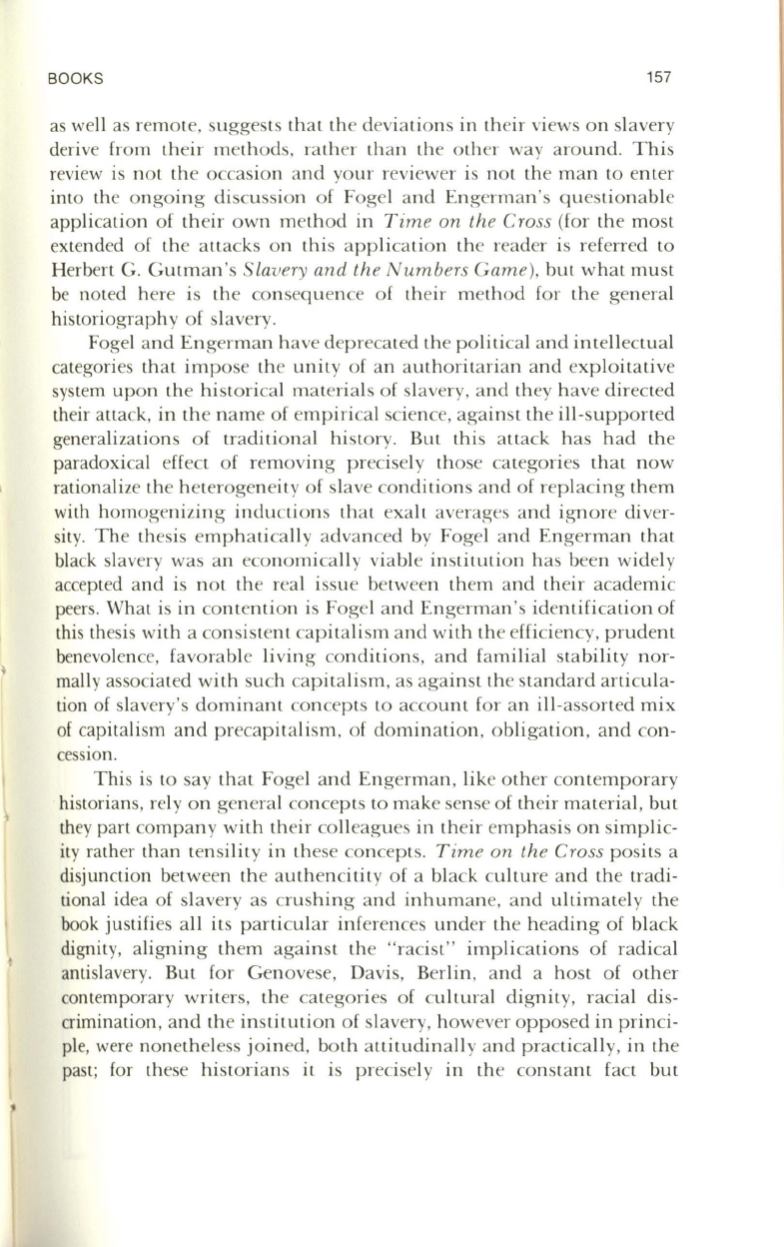
BOOKS
157
as well as remo te, suggests that th e deviations in their views on slavery
derive from their methods, rather than the other way around. This
review is not the occasion and your revi ewer is not the man to enter
into the ongoing discussion of Fogel and Engerman's ques tionable
application of their own method in
Time on the Cross
(for the most
extended of the attacks on this application the reader is referred
to
Herbert G. Gutman's
Slavery and the Numbers Game),
but what must
be noted here is the consequence of their method for the general
historiography of slavery.
Fogel and Engerman have depreca ted the political and intellectual
categories that impose the unity of an authoritarian and exploitative
system upon the historica l materials of slavery, and they have directed
their attack, in the name of empiri cal science, against the ill-supported
generalizations of traditional history. But this attack has had the
paradoxical effect of removing precisely those ca tegories that now
rationalize the heterogeneity of slave conditions and of replacing them
with homogenizing inductions that exalt averages and ignore diver–
sity. The thesis emphatically advanced by Fogel and Engerman that
black slavery was an economically viable institution has been widely
accepted and is not the rea l issue between them and their academic
peers. What is in contention is Fogel and Engerman 's identification of
this thesis with a consistent capitalism and with the effici ency, prudent
benevolence, favorabl e living conditions, and familial stability nor–
mally associated with such capitalism, as against the standard articula–
tion of slavery's dominant concepts to account for an ill-assorted mix
of capitalism and precapitalism, of domination, obligation, and con–
cession.
This is
to
say that Fogel and Engerman, like other contemporary
historians, rely on general concepts to make sense of their material , but
they part company with th eir colleagues in their emphasis on simplic–
ity rather than tensility in these concepts.
Time on th e Cross
posits a
disjunction between the authencitity of a black culture and the tradi–
tional idea of slavery as crushing and inhumane, and ultimately the
book justifies all its parti cular inferences under the heading of black
dignity, aligning them against the " racist" implications of radical
antislavery. But for Genovese, Davis, Berlin, and a host of other
contemporary writers , the ca tegories of cultural dignity, racial dis–
crimination, and the institution of slavery, however opposed in princi–
ple, were nonetheless joined, both attitudinally and practi cally, in the
past; for these historians it is precisely in the constant fact but


